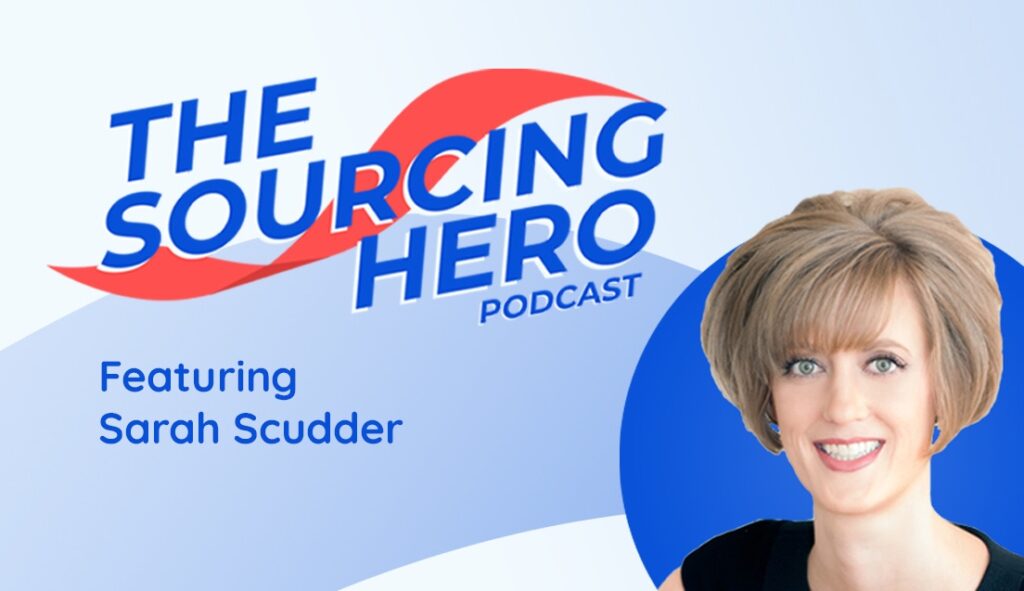7 Ways to Have a Successful Procurement Career
By Hugo Britt | February 16, 2021
Ever wondered what makes a successful procurement career, well, successful? In these unusual and disruptive times, the role of procurement professionals is shifting and evolving at a rapid pace. If you want to make it to the top you will not only need agility, adaptability, and resilience, but you’ll also have to think very carefully about the career choices you make along the way.
Several guest speakers on The Sourcing Hero podcast shared tips on how to have a successful career in procurement and supply chain management.
Seek out progressive organizations
In Episode 11 of The Sourcing Hero podcast, Stephany Lapierre, Founder & CEO of Tealbook, advises that ambitious professionals steer well-clear of organizations continuing to pedal an antiquated version of procurement. Asking the right kind of questions will quickly expose workplace culture and the organization’s vision for procurement.
“Are they at a stage where they are close (or in the middle of) a digital transformation? How are they thinking about data and what’s their data strategy?”, said Stephany.
Ask the right questions and you’ll know whether you’re joining a team that’s more progressive. It will give you the opportunity to be a lot more strategic in your role and not get into a tactical position.”
Stephany Lapierre, Tealbook Founder & CEO
Align your performance with business priorities
Stephany highlights the importance of understanding an organization’s long-term procurement roadmap and top business priorities, as well. She notes that the procurement team of the future must find ways to scale up and impact the entire organization.
“Create a sense of enablement so you’re allowing people in the organization to move faster and respond to demands of the market faster. If you’re able to do that, you’re going to be recognized by your CEO, CFO, and leadership team. Always try to think of what I can do that ties back to what the organization is trying to accomplish.”
Challenging the system will lead to a successful procurement career
In Episode 8 of The Sourcing Hero podcast, Dave Hulsen, Co-founder and COO of RFP360 shared that he’s a big believer in constructively challenging outdated procurement processes, policies, and business leaders.
“There are a lot of buyers that have tried to bring a solution into their company and they’ve been met with some resistance from upper management. They might think about things differently or maybe they have some historical concerns – they’re not thinking outside the box.”
Hulsen advises that professionals continually challenge the people, the process, and the technology. A challenge that is met with an unsatisfactory response might indicate where change could happen. “Fighting for tools and technology is tough against budgets, especially in the environment we’re in right now. But you can convince somebody that you’ll get better competition and better results at a better price, even if you don’t have the hard data to back that up.”
If an organization is inflexibly opposed to the changes you propose, it might not be an organization you want to work for.
Believe in yourself and be proactive
Episode 3 features Phil Ideson, Founder and Managing Director of the Art of Procurement. During these difficult times, Phil stressed the importance of procurement professionals being confident in their own abilities, no matter what challenges they may face in the coming months.
“If the situation [procurement professionals] find themselves in now isn’t optimal, don’t take it personally. Right now there will be a lot of folks wondering what’s going to happen with their jobs.”
Phil’s advice for those who are concerned about job security? “Be yourself. Focus on being the best that you can be in your position and learning as many skills as you can. If you’re not appreciated here, there will always be an opportunity somewhere else. Don’t just sit there and wait for something to happen.”
Instead, Phil advises that you be proactive, whether it’s looking for new opportunities or finding ways to bring value to a key stakeholder. Doing so will ensure your successful procurement career is on the right path.
Find roles that challenge you
Frank Corris, CEO of Corris Consulting Group, shares the importance of finding roles that match your expertise in Episode 2.
Procurement professionals have historically come from a finance or accounting background, but being good with numbers won’t suffice in today’s world. “If you see a position posted as ‘procurement agent’ – move on, it doesn’t exist,” Frank says. “And if it does exist, it’s old school and you’re not going to be happy.”
Frank advises graduates to avoid roles that place too much importance on transactional procurement and cost-saving. “I have never had a very large save or a sustainable save where I didn’t change the process, whether it’s the integration of technology or mapping out the current workflow. A common measurement is ‘how much money are you going to save me’, but it should be ‘how am I making your business more efficient.’”
Aim big but start small
In Episode 1, Sarah Scudder, President of Real Sourcing Network, explained why up and coming procurement professionals should refrain from diving in at the deep end with big projects.
“I made some big mistakes early on in my career. Instead of coming in and tackling smaller projects, I wanted to come in and take over the major projects and that’s very challenging.”
Start by focusing on a series of small wins and doing them well. In time, stakeholders in your organization will see that you’re solving problems and come to you with bigger and more challenging projects.
A promotion isn’t always the best thing for your career
It may sound counterproductive, but that next promotion may not be the best thing for you. “Sometimes you need to make a lateral career move to move up,” explains Sarah. Early on in her career, Sarah made the mistake of chasing bigger titles and higher pay. But in hindsight, she acknowledges that the occasional lateral move can best serve a successful long-term career.
“You may not have a title or salary advancement, but you’re going to pick up skills that you really need to get you to where you want to be in your career eventually.”
Want to hear more epic stories from industry-leading procurement practitioners? Listen to full episodes of The Sourcing Hero podcast here.



